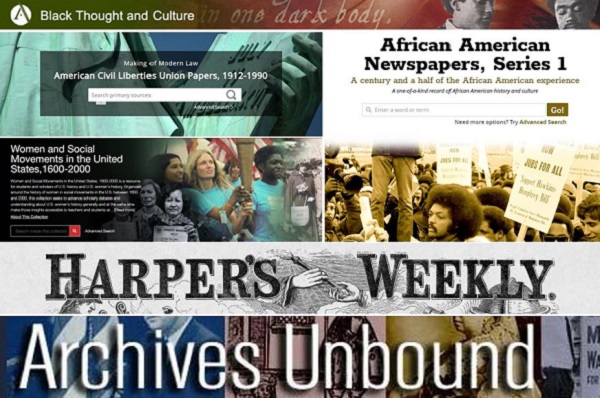University Libraries

‘Do You Know Who You Are?’
By Amanda Black
As I reflect on Black History Month and how it has shaped and continues to shape American history, I’m struck with the importance of students getting to know their past. As they read about and witness injustices throughout the world, students have awakened to the realization that a fuller understanding the history of their own country can provide more detailed context for their own experiences. This type of research can not only provide a sense of identity, but also equip them with knowledge and perspective as they work to dismantle systems of inequality.
Know your history; know yourself
The best way to fully understand self comes from researching your story. The unique part about researching your story is that it's your own. For example, your story could include research topics about Martin Luther King Jr.’s “I Have a Dream” speech; or, it could be ’90s-era hip-hop that resonates with you in understanding your story.
I think of the beginning of my own story when I was a sophomore in college. I was sitting in my first African-American studies class and was fascinated by the first question my professor asked us: “Do you know who you are?” At this point, I realized I had some work to do so that I could truly discover the beginning of my story as a black woman and how the black experience has shaped my life and the lives before me.
After getting to know your history, I hope it compels you to look at someone else’s story, allowing the journey to take you on a fulfilling experience.
The databases I’ve enjoyed using at Roesch are:
- America: History & Life
- African American Music Reference
- American Civil Liberties Union Papers, 1912 -1990
- Black Thought and Culture
- Sociological Collections
- Women and Social Movements in the United States
These databases have helped me to identify the history of African-Americans; they support research, teaching and learning in America and beyond. I encourage everyone to research black history, get to know the black experience, and research yourself. No matter your cultural identity, you’re likely to learn something new about yourself and the person you’re sitting next to, too.
More databases available at Roesch:
- African- American Newspapers
- Archives of Sexuality & Gender: LGBTQ History and Culture Since 1940
- HarpWeek
- History Vault: Black Freedom Struggle in the 20th Century: Federal Government Records
- Historical Statistics of the United States
- New York Times Historical
- Oxford African American Studies Center
- Race Relations Abstracts
- Reconstruction, Jim Crow and the Enforcement of Federal Law in the South, 1871-1884
- SocINDEX
— Amanda Black is coordinator of access services in the University Libraries.
